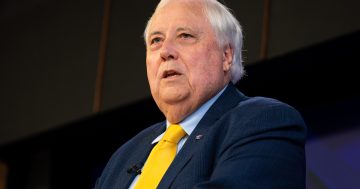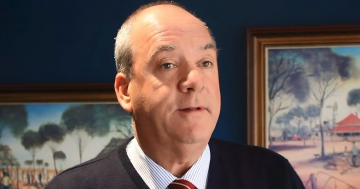Jeff Wilser* says some of us just aren’t ‘phone people’, but he has found a way to start conquering his reluctance to pick up the phone.
 When the phone rings, I panic.
When the phone rings, I panic.
The sound is alarming.
I know I’m not alone in my phone-phobia.
It seems like everyone under the age of 50 says “I’m not a phone person”, yet I’m worse than most.
For years I laughed off my aversion to the phone, yet recently I recognised it for what it was: an actual anxiety.
Yet anxieties can be treated.
Maybe I could try some kind of “exposure therapy” to conquer my fears?
I reached out to Dr Debra Hope, the Director of the Anxiety Disorders Clinic at the University of Nebraska-Lincoln, and co-author of Managing Social Anxiety.
When Hope works with patients on social anxiety, she’ll begin with something called cognitive restructuring, where you pay attention to your thoughts about the phobia and look for something called “automatic thoughts”.
Let’s say you have anxiety about work calls, and you might think, “I won’t sound competent on the phone, because I’ll stumble over my words.”
Once you’ve identified that thought, Hope says to look for the logical errors.
Challenge the assumption.
There’s a good chance you’re “catastrophising”.
Instead you might ask yourself, “Are you 100 per cent certain you’ll look incompetent?” says Hope.
Then come up with something you can say back to that catastrophising, as a retort.
Such as: “Stumbling over my words a little bit doesn’t mean that I’m totally incompetent.”
Even that little concession helps reduce the anxiety.
Then condense it: “Stumbling doesn’t equal incompetence.”
Hope suggests writing this down and focusing on it when making your calls.
Part of my phobia is driven by anxiety, and part is just plain laziness — the phone feels like a chore.
To tackle this mind-set, Hope says it can be helpful to do a quick cost/benefit analysis of the call, as you’ll often realise that the good outweighs the bad.
“Yes, it’s aversive,” she says.
“But how long does it last? How bad is it? And what are the benefits of the call?”
For example, if you’re in sales and you dread calling a prospective client, remind yourself of the call’s underlying reason — you want to land that customer, because you want more revenue, because you like money.
Focus on the purpose.
Now it’s time for the exposure therapy itself.
There are a couple of different approaches: One method is to start by tackling your biggest fears first (sink or swim), and the other is to gradually work your way up to the higher anxiety calls — easy, medium, then hard.
I opt for the latter.
Let’s do this.
Easy: 3 days
Hope says some people are able to place outgoing calls fairly easily, but they struggle with a longer conversation.
I’m okay once the call has momentum, but it’s the very act of placing — or answering — the call that stabs me with panic.
To overcome this aversion to beginning calls, Hope suggests that I practise making a burst of calls that are short, low stakes, and even “fake”, if necessary.
“You can even call a business just to ask what time they close,” she suggests.
Medium: 4 days
For the next several days, I focus on two things: calling friends and family just to say hello, and then actually answering the phone when it rings.
I pounced on 10-minute windows as opportunities for quickie calls.
On my walk home, normally I would listen to a podcast, but instead I called a friend to wish him happy birthday.
Or when another friend texted to coordinate dinner plans, I just called him and that actually saved time.
My safety mechanism is to let calls go to voicemail.
Not today!
I made an effort to pick up the phone whenever someone called, even if the timing was bad.
Hard: 3 days
The thing I fear most is the Big Catch-Up call.
This is not because I don’t like talking to my friends, but because, out of guilt, I know I’ve let too much time lapse since our last interaction, and I’m anxious about breaking the seal.
The more time passes, the harder it is to pick up the phone, which makes more time go by, creating a vicious cycle.
I haven’t spoken to one of my best friends, Evan, for nearly two years.
For months I’ve been meaning to call him.
Buoyed by the inertia from my Easy and Medium calls, on a Friday evening, with no texting preamble, I just phoned him.
“Hey, what’s going on,” he said, as if we had spoken yesterday, and instantly we resumed our easy rapport.
What was I afraid of?
I made a similar call to another friend, then another.
I began making more phone dates.
The Big Catch-Up call can be tough to spontaneously slot into the evening (or in my case, embarrassingly easy, depending on the week), but when I know it’s coming, it’s mentally “budgeted” into my brain’s calendar.
“You around for a catch-up call later this week?” I texted a friend, and then looked forward to the call.
Heeding Hope’s wisdom, I tried to remind myself of the underlying purpose of these calls — my friendships are important to me, and the phone is a way to nourish these friendships.
I finished each call feeling closer to my friend.
I’m not pronouncing myself fully cured.
Yet I have, at least to some extent, reframed the phone as a force for good, not evil.
It’s easier to make outgoing calls.
I’m less freaked out by a random ring.
I’m looking forward to speaking to my friends, who I cannot see in person, during social distancing.
This is not a completed project, and apologies to my friends who I still owe a call … let’s talk soon!
Call me. I’ll answer.
* Jeff Wilser is a freelance writer. He tweets at @jeffwilser.
This article first appeared at www.fastcompany.com.












